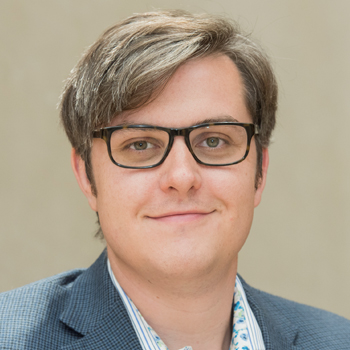Daniel Epps
Associate Professor of Law
Washington University Law School
Professor Daniel Epps teaches and writes about criminal law and criminal procedure. His research analyzes the criminal justice system using the tools and insights of structural public law and institutional design. His first article, The Consequences of Error in Criminal Justice, 128 Harvard Law Review 1065 (2015), probed the historical, intellectual, and normative foundations of the "Blackstone principle"—the idea in criminal law that it is preferable to let many guilty defendants go free in order to avoid convicting a smaller number of innocent defendants. His most recently published article, Adversarial Asymmetry in the Criminal Process, 91 NYU Law Review 762 (2016), analyzed and critiqued our system's approach to motivating prosecutors.
Professor Epps has a secondary interest in federal courts and the design of judicial institutions, and he is a nationally recognized expert on the Supreme Court. His most recent paper, The Lottery Docket (forthcoming in the Michigan Law Review, with William Ortman), proposes supplementing the Court's case selection process with a set of cases drawn at random from final decisions of the circuit courts. He is the co-host of First Mondays, a popular podcast that covers the Court while it is in session. And he is an experienced Supreme Court litigator. Most recently, he served as co-counsel for the defendant in Ocasio v. United States, 136 S. Ct. 1423 (2016), which addressed the scope of criminal conspiracy liability for public-sector extortion. His other notable prior work includes the successful petition for certiorari and merits briefing in Walden v. Fiore, 133 S. Ct. 1493 (2014); a brief for the Court-appointed amicus curiae in Millbrook v. United States, 133 S. Ct. 1441 (2013); and an amicus brief for criminal law and procedure scholars in United States v. Davila, 133 S. Ct. 2139 (2013). He also served as co-counsel on the brief of Prof. Stephen E. Sachs as amicus curiae in Atlantic Marine Construction Co. v. U.S. District Court, 134 S. Ct. 568 (2013) (with Jeffrey S. Bucholtz & Stephen E. Sachs), which The Green Bag Almanac & Reader included on its list of "Exemplary Legal Writing" for 2013.
Professor Epps received his A.B. summa cum laude with highest distinction in Philosophy from Duke University and his J.D. magna cum laude from Harvard Law School, where he was Articles Co-Chair of the Harvard Law Review and won the John M. Olin Law & Economics prize. After law school, he clerked for Judge J. Harvie Wilkinson III of the U.S. Court of Appeals for the Fourth Circuit and for Justice Anthony M. Kennedy of the Supreme Court of the United States. He then spent several years as an appellate specialist at King & Spalding LLP in Washington, D.C. While in practice, he also served as a Lecturer at the University of Virginia School of Law, where he co-taught a course called "Supreme Court Decisionmaking." Immediately prior to joining Washington University, he was a Climenko Fellow and Lecturer on Law at Harvard Law School.

